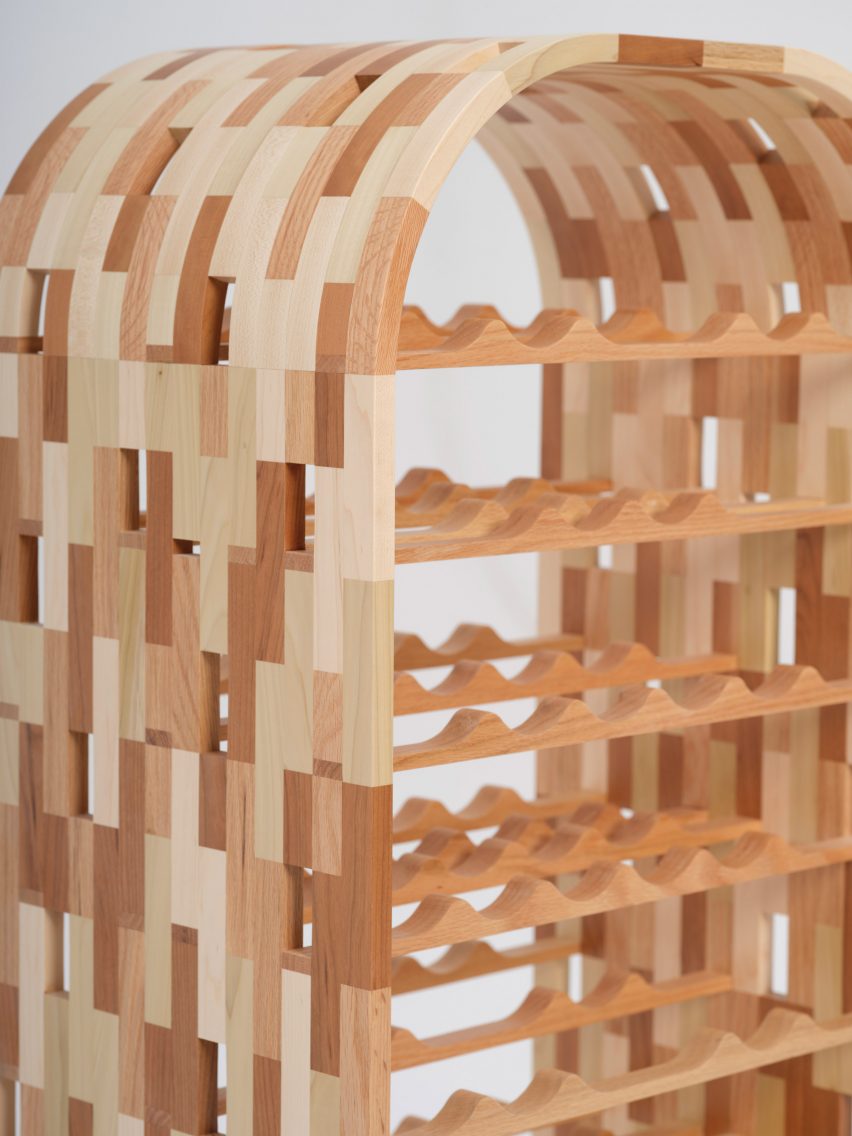
Spanish students turn hardwoods into furniture pieces for Slow Spain
Spanish design students used red oak, maple, cherry and tulip woods to create furniture pieces for Slow Spain: Slow furniture for fast change, an exhibition by the American Hardwood Export Council at Madrid Design Festival.
A side table that doubles as a lamp, a modular shelving unit and a backless chair were among the designs created by 17 university students for the exhibition, which aims to explore American hardwoods and mindful material and furniture consumption.

“Red oak, maple, cherry and tulipwood are not used widely in Europe, they are used very little in Spain,” said American Hardwood Export Council (AHEC) European director David Venables.
“But they’re 50 per cent of all our trees. We need to think much broader and use more wood and be prepared to use different materials as fashions and trends can sometimes be a barrier to success,” Venables told Dezeen.
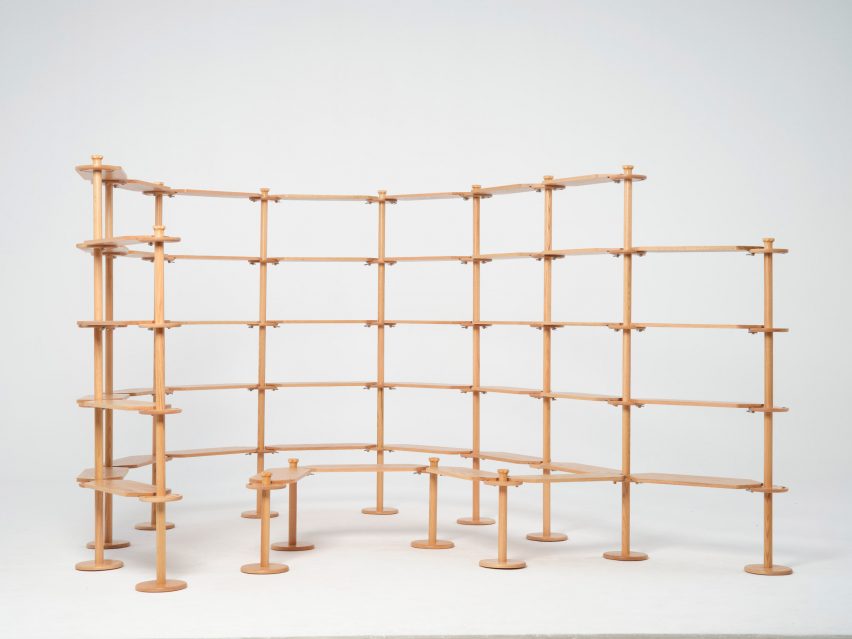
Slow Spain was on show at Fernán Gómez Centro Cultural de la Villa, a theatre and cultural centre and one of Madrid Design Festival’s main exhibition venues.
Designers Natale Armendáriz, Jon Calleja, Nora Etxeberria, Ane Ozkoidi, Eli Yang, Anna Perathoner and Arnau Anoro all exhibited modular furniture designs that accommodate flexible lifestyles.
A cot that can be transformed into a clothing rail once the baby has grown up and a shelving unit with detachable panels were among the designs.
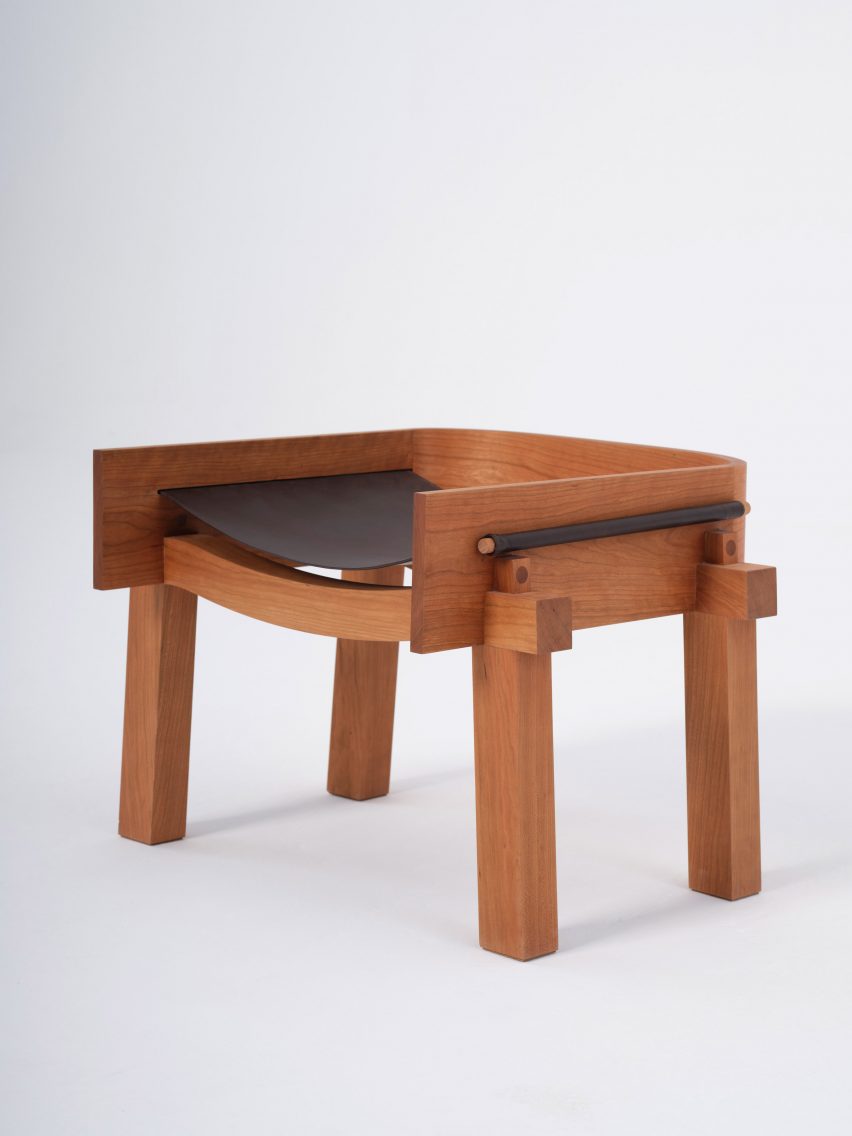
Other pieces by the students, which came from nine Spanish design universities, were designed as alternatives to traditional items such as desks and chairs.
Daniela González Martínez created a chair that draws on Japanese craftsmanship, while Leve Mon Verre by Cèlia Anglés is a drinks cabinet that invites people to interact as they have a drink.
In line with AHEC’s ethos, which champions the use of sustainable and durable materials, some of the designs were wooden versions of furniture that is often made from plastic.
These included Töei by Alejandro Lorca, Elena Romero and Cristina Urbano, a garden seat for outdoor use that was made from American tulipwood. It was designed to cocoon users when sitting inside, in an effort to encourage rest and shelter from the outside world.
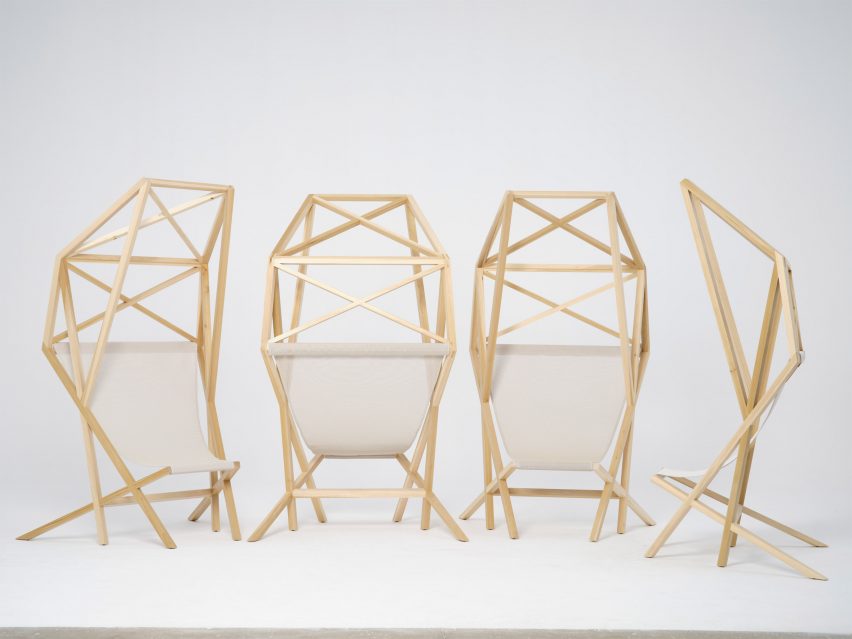
To create the objects, the students worked under the guidance of three Spanish designers – Inma Bermúdez and Moritz Krefter of Studio Inma Bermúdez, Álvaro Catalán de Ocón and Jorge Penadés.
AHEC then took the students to the manufacturing site La Navarra in Madrid, where renowned architects and designers have previously had their designs manufactured.
Here, the students observed the pieces being handcrafted and learned about the specific carpentry and joinery processes.
The resulting designs demonstrate the different wood qualities and characteristics. Berta Albiac Adell, Queralt Font Sabadell and Albert Roca Nonell chose to work with American maple for its light tones for their bedside table.
Meanwhile, Jonathan Paige decided to use American red oak for his easel-cum-desk piece, which is held together with dovetail joints. Elsewhere, Blas by Sheila Valle García was constructed from American tulipwood because of its veiny appearance and changes in tones.
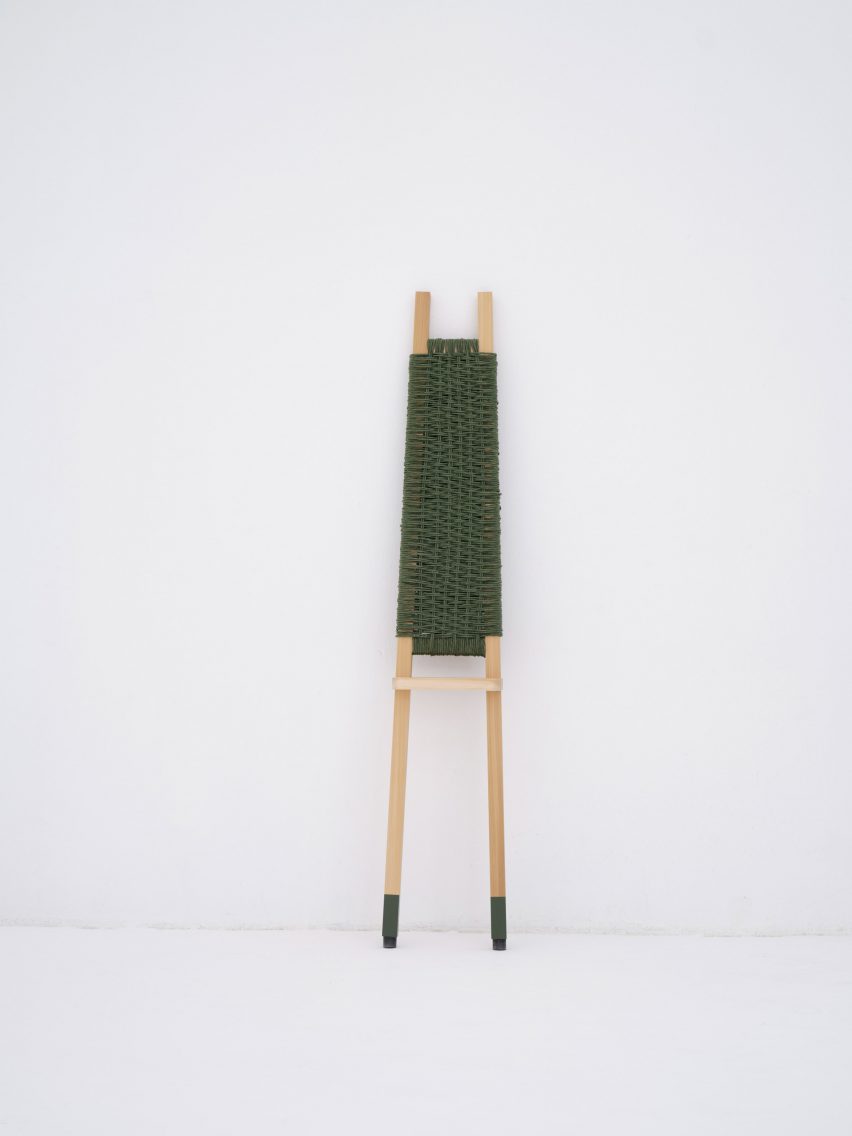
The hope was that students would gain awareness and knowledge about the different species of wood and that they may consider using American hardwoods in future projects.
“Slow is about education and opportunity,” said Venables. “We have attempted to fill the gap in design education which often does not provide an in-depth experience for design students to learn about and work with hardwood materials.”
According to AHEC, American hardwoods are growing at a far greater rate than it is harvested, making them a sustainable material choice for designers.
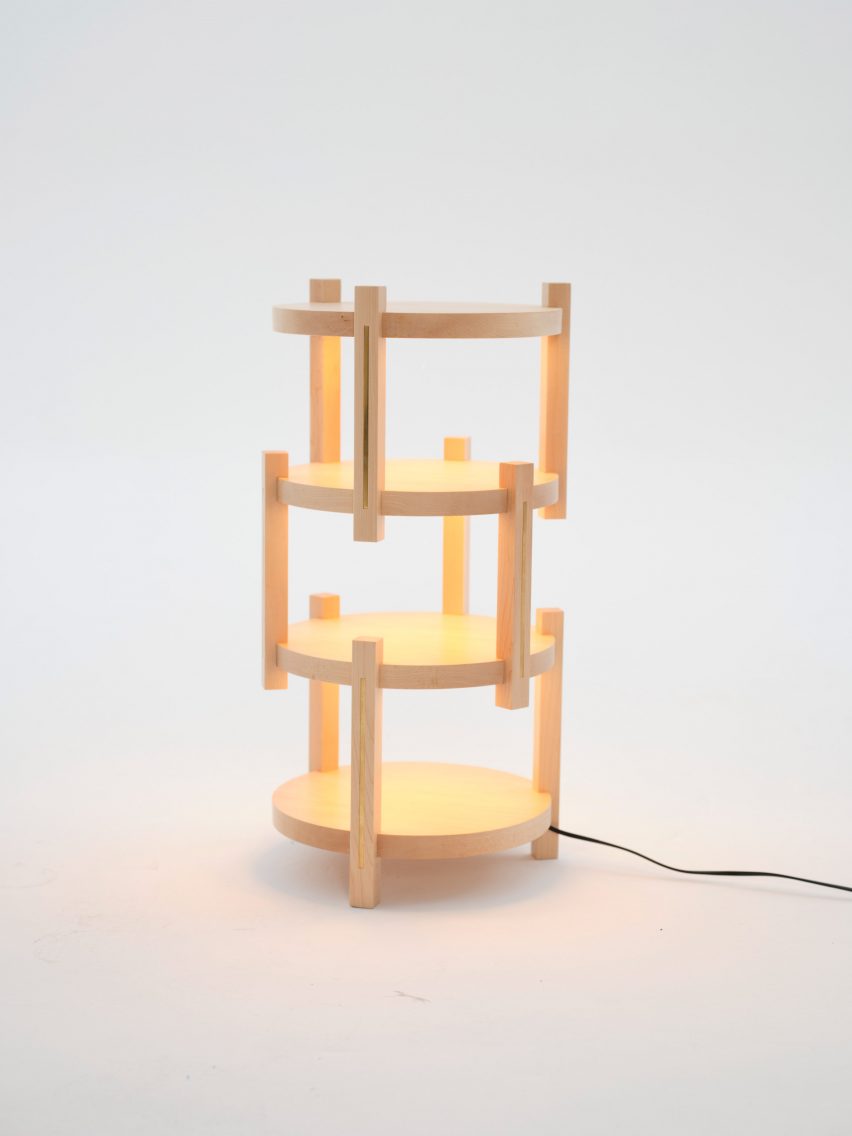
The students taking part in the exhibition came from EASD Escola d’Art i Superior de Disseny de València, Elisava Escola Universitària de Disseny i Enginyeria de Barcelona, ESDAP Campus Llotja – Escola Superior Disseny i d’Arts Plàstiques de Catalunya, ESDi Escola Superior de Disseny (Sabadell), ESDIR (Escuela Superior de Diseño de la Rioja), ESNE Escuela universitaria de diseño, innovación y tecnología, IED Barcelona, IED Madrid and Mondragon Unibertsitatea.
Other exhibitions by AHEC include Forest Tales by Studio Swine, which saw packing crates form an installation at Milan Design Week 2022 and Too Good to Waste, a playful exhibition of wooden furniture by Italian architect Benedetta Tagliabue.
Slow Spain: Slow furniture for fast change is on show at Fernán Gómez Centro Cultural de la Villa as part of Madrid Design Festival 2023, which takes place from 14 February to 12 March. See Dezeen Events Guide for information about the many other exhibitions, installations and talks taking place throughout the month.
The photography is courtesy of AHEC.
Project credits:
Designers: Jonathan Paige, Berta Albiac Adell, Queralt Font Sabadell, Albert Roca Nonell, Cèlia Anglés, Arnau Anoro, Sheila Valle García, Alejandro Lorca, Elena Romero, Cristina Urbano, Eli Yang, Anna Perathoner, Daniela González Martínez, Natale Armendáriz, Jon Calleja, Nora Etxeberria, Ane Ozkoidi
Mentors: Inma Bermúdez and Moritz Krefter, Álvaro Catalán de Ocón, Jorge Penadés
Partners: American Hardwood Export Council, Fernán Gómez Centro Cultural de la Villa, La Navarra, Madrid Design Festival, Onesta